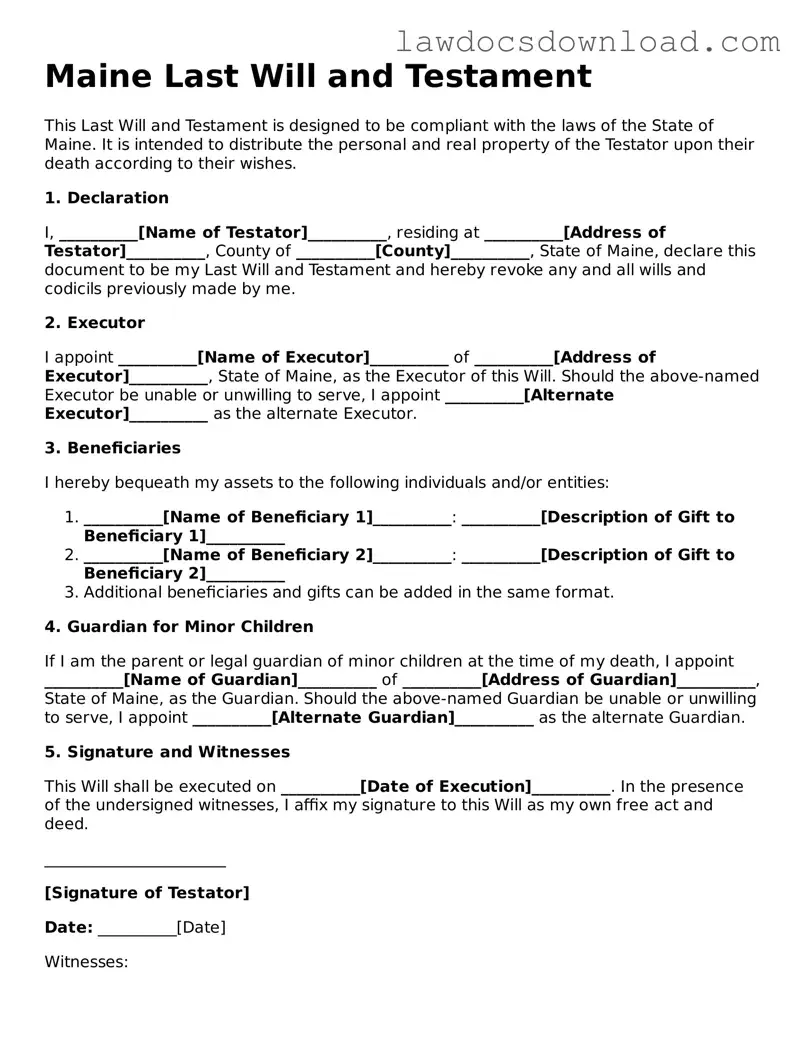Maine Last Will and Testament
This Last Will and Testament is designed to be compliant with the laws of the State of Maine. It is intended to distribute the personal and real property of the Testator upon their death according to their wishes.
1. Declaration
I, __________[Name of Testator]__________, residing at __________[Address of Testator]__________, County of __________[County]__________, State of Maine, declare this document to be my Last Will and Testament and hereby revoke any and all wills and codicils previously made by me.
2. Executor
I appoint __________[Name of Executor]__________ of __________[Address of Executor]__________, State of Maine, as the Executor of this Will. Should the above-named Executor be unable or unwilling to serve, I appoint __________[Alternate Executor]__________ as the alternate Executor.
3. Beneficiaries
I hereby bequeath my assets to the following individuals and/or entities:
- __________[Name of Beneficiary 1]__________: __________[Description of Gift to Beneficiary 1]__________
- __________[Name of Beneficiary 2]__________: __________[Description of Gift to Beneficiary 2]__________
- Additional beneficiaries and gifts can be added in the same format.
4. Guardian for Minor Children
If I am the parent or legal guardian of minor children at the time of my death, I appoint __________[Name of Guardian]__________ of __________[Address of Guardian]__________, State of Maine, as the Guardian. Should the above-named Guardian be unable or unwilling to serve, I appoint __________[Alternate Guardian]__________ as the alternate Guardian.
5. Signature and Witnesses
This Will shall be executed on __________[Date of Execution]__________. In the presence of the undersigned witnesses, I affix my signature to this Will as my own free act and deed.
_______________________
[Signature of Testator]
Date: __________[Date]
Witnesses:
- Name: __________[Witness 1 Name]__________
Address: __________[Witness 1 Address]__________
Signature: _______________________
Date: __________[Date]
- Name: __________[Witness 2 Name]__________
Address: __________[Witness 2 Address]__________
Signature: _______________________
Date: __________[Date]
6. Affirmation by Witnesses
We, the undersigned witnesses, affirm that the Testator, __________[Name of Testator]__________, signed this document as their Last Will and Testament in our presence. We further affirm that the Testator appears to be of sound mind and not under duress, fraud, or undue influence. We are not named as beneficiaries of this Will.
This document was prepared in accordance with the laws of the State of Maine and is intended to be a legally binding document.

